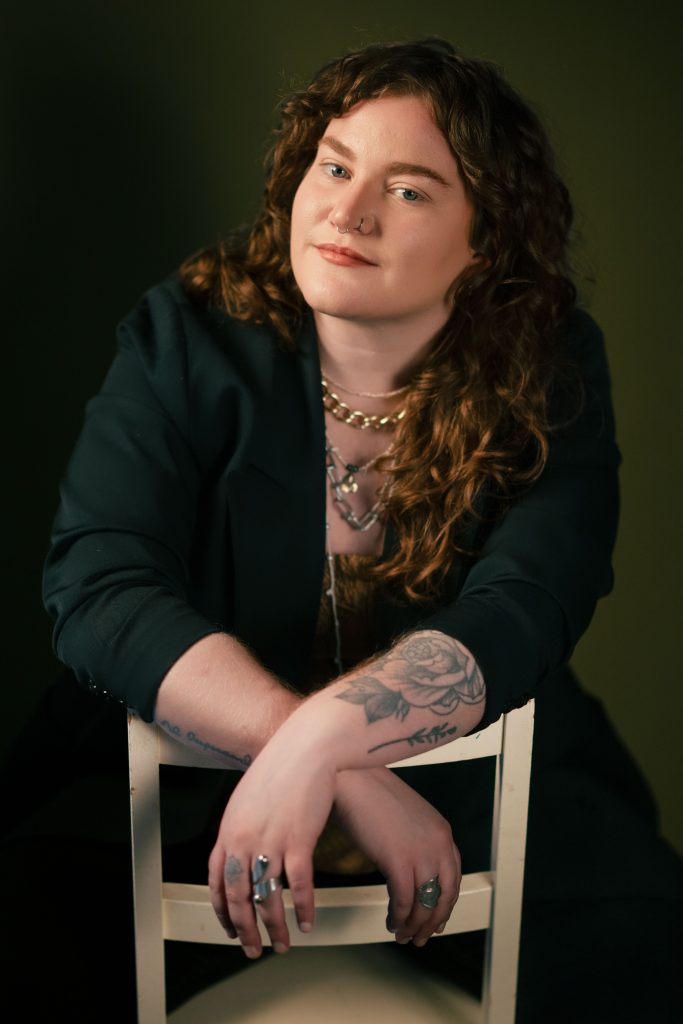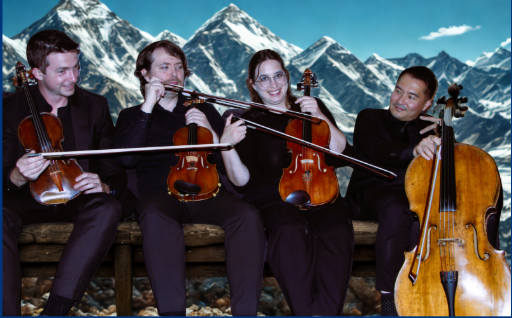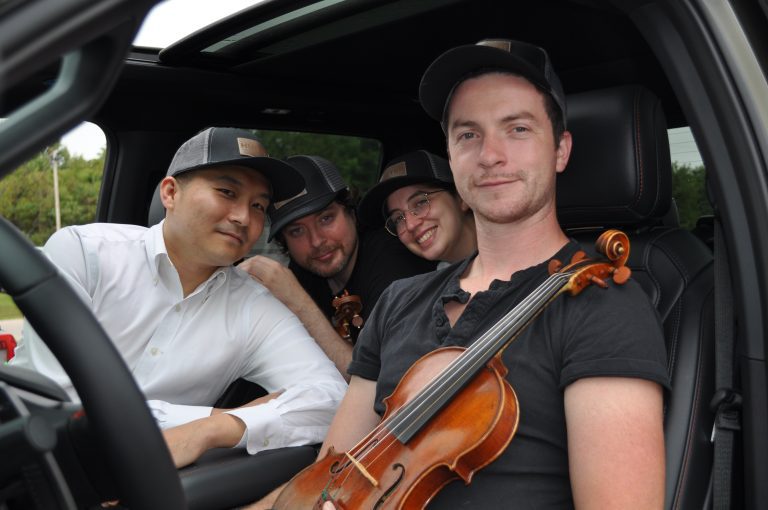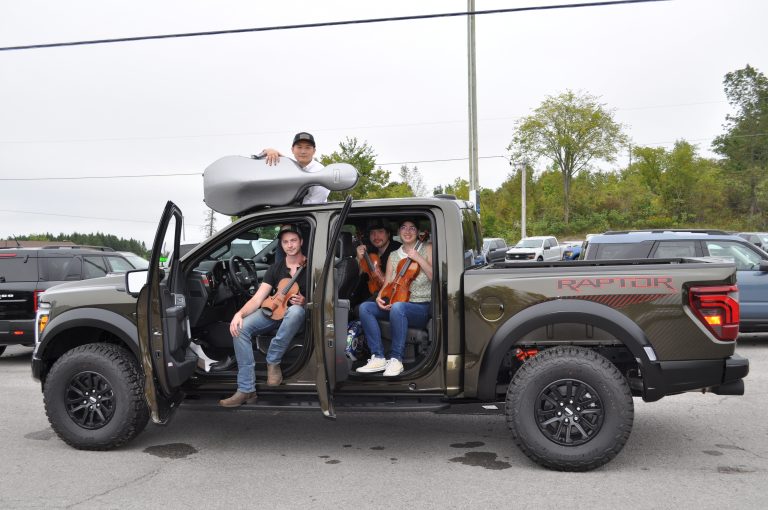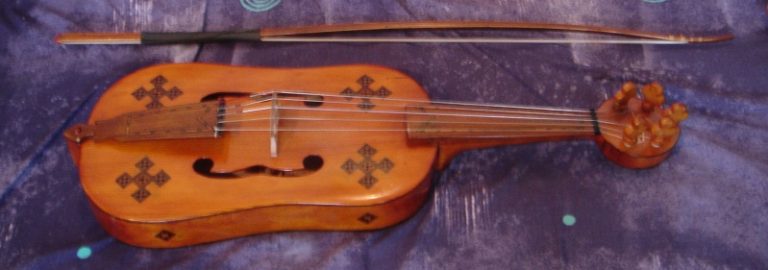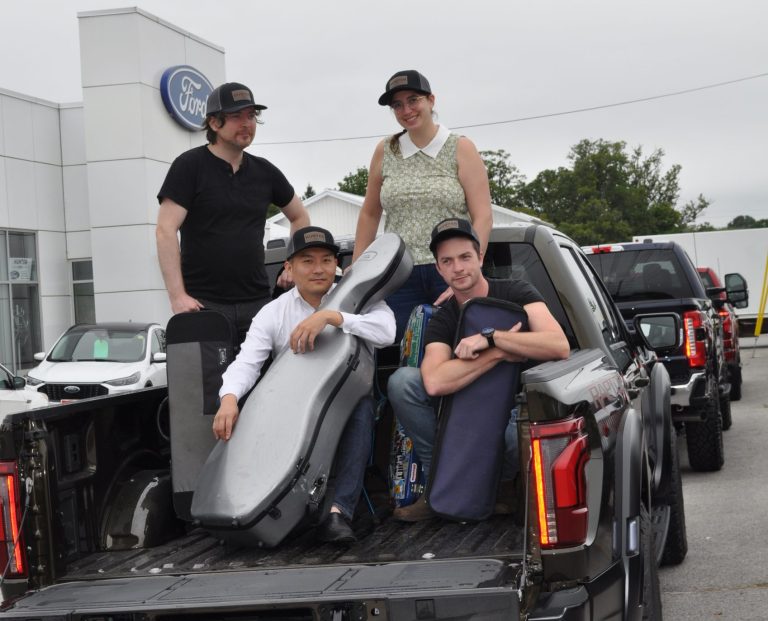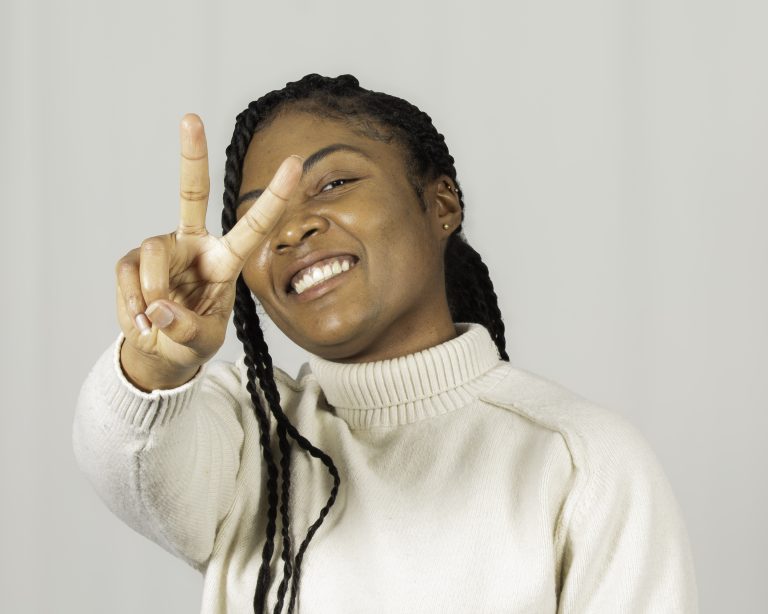Meet COMTESSA!
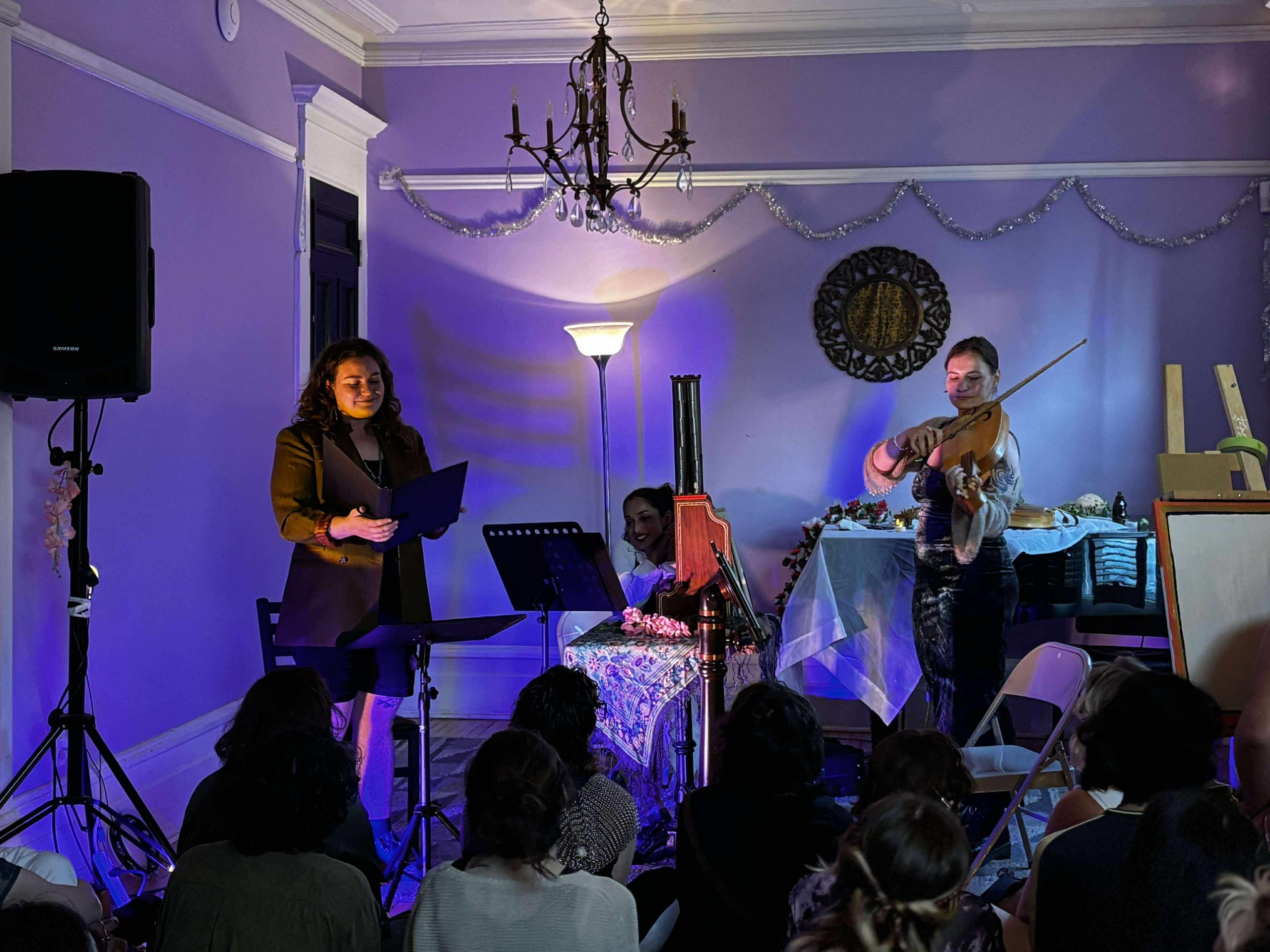
“Before Chamber Music” with COMTESSA
MON Sept 1 (Labour Day), 4 pm
Stock and Row Cidery Tasting Room, 114 Gilead Rd, Bloomfield
ADMISSION FREE, Donations welcome
COMTESSA is Montreal-based ensemble performing music written before 1500.
It’s chamber music before chamber music, complete with instruments like the vielle, lute, and organetto. These are the early ancestors of the violins, viols, and keyboards all central to the master works of later centuries and they are coming to Bloomfield! Join us! Experience it all. Live. In person. Free admission. Family friendly. Donations welcome.
Read on to discover more about the musicians, or check out https://comtessa.ca/:
Isabelle Douailly-Backman (she/her/they/them) is a Montreal-based historical string player. Originally from Chicago, she moved to Montreal to pursue a degree in modern viola at McGill University. There she discovered a love for early music and has since completed a B.Mus in Baroque Viola and a M.Mus in Baroque Violin from McGill University under the tutelage of Hélène Plouffe and Olivier Brault.
Today, Isabelle frequently performs on baroque violin, viola, and medieval vielle with ensembles and festivals in Canada, including Ensemble Caprice, Arion Baroque Orchestra, Tenet Vocal Artists, L’Harmonie des Saisons, Musique Royale, and Montreal Baroque Festival. She is also currently studying medieval vielle at the prestigious Schola Cantorum in Basel, Switzerland, under the tutelage of Baptiste Romain. She is the artistic director and founder of COMTESSA, an historically-informed ensemble who performs 11th to 15th century music on medieval period instruments. Isabelle is the 2023 recipient of the Barbara Thorton Memorial Scholarship, a biennial scholarship awarded by Early Music America and members of Sequentia to “an outstanding and highly motivated young performer of medieval music.” Isabelle also collaborates outside the early music scene with groups like the queer arts collective Sapphonix.
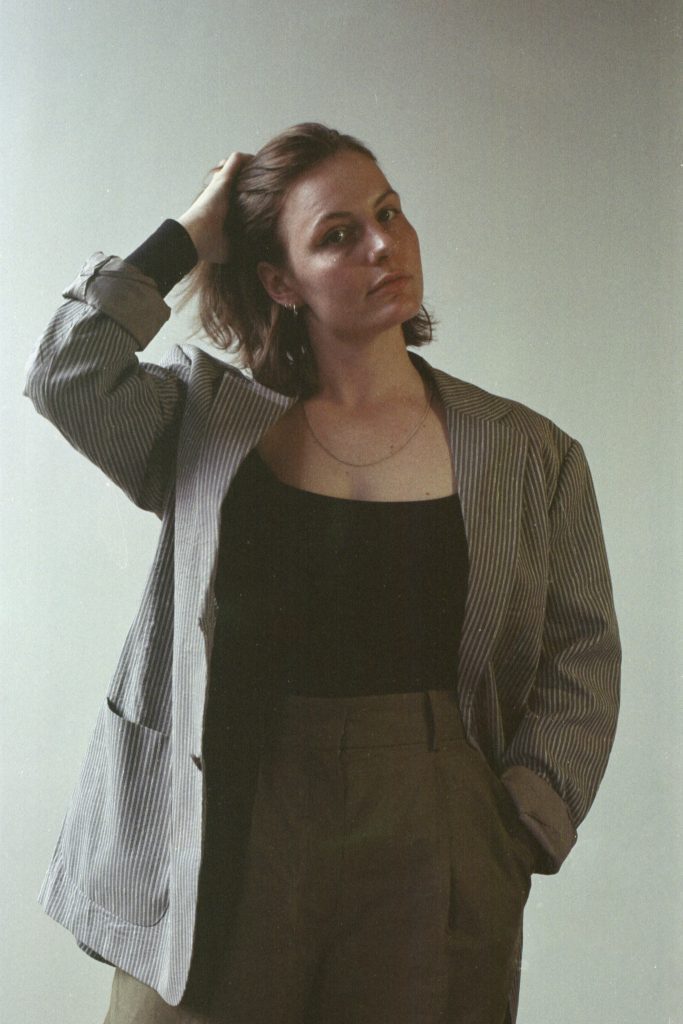
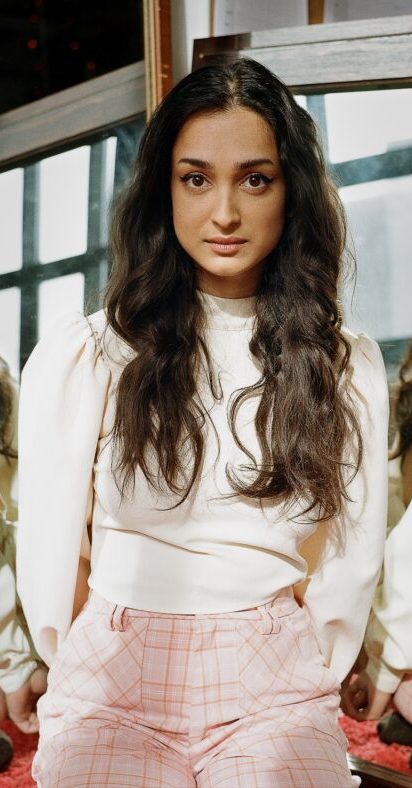
Maria Gajraj is a Montréal-based organist and Doctoral Candidate at McGill University.
Her research focuses on 20th-century Caribbean organ repertoire. She is the co-founder of Sapphonix Collective, which promotes women, queer, and racialized classical musicians, and has been featured on CBC Radio. Maria is also the executive director of medieval ensemble COMTESSA, in which she plays organetto.
Maria has performed internationally, at venues like Salle Bourgie, Maison Symphonique, and the Orgelpark (Amsterdam) and in series such as Cal Performances (USA) and Bergen Orgelsommer (Norway). A recipient of the Godfrey Hewitt Scholarship (2022) and other awards, her doctoral research is funded by the FRQ (Fonds de Recherche du Quebec).
In her concert programs, Maria is passionate about highlighting women and composers of colour. As Deirdre Piper wrote in “Pipelines”, Maria’s “spirited, clean, and colourful performance lent real meaningful significance” to this music. By creating engaging concert programs, and by featuring the organ in innovative and multidisciplinary contexts, Maria strives to break stereotypes, and to make the organ more accessible to everyone.
Len Torrie is a Montréal-based soprano, singer-songwriter, and performance curator known for their crystalline tone, expressive versatility, and storytelling depth. A sought-after soloist, Len performs regularly with leading early music ensembles including L’Harmonie des Saisons, Studio de musique ancienne de Montréal, and Ensemble Caprice.
Len holds a master’s degree in early music vocal performance from McGill University, where they studied under Suzie LeBlanc and Dominique Labelle. Internationally, Len has trained with the Accademia Europea dell’Opera and the Internationale Bachakademie Stuttgart. They are one- third of the medieval trio COMTESSA, where they sing and play citole and Anglo-Saxon lyre.
A queer, non-binary artist, Len draws on the wisdom of queer elders and ancestors in their research and performance of radically inclusive stories. Their work bridges early music and contemporary folk, with a growing focus on self-accompaniment on period and modern instruments.
